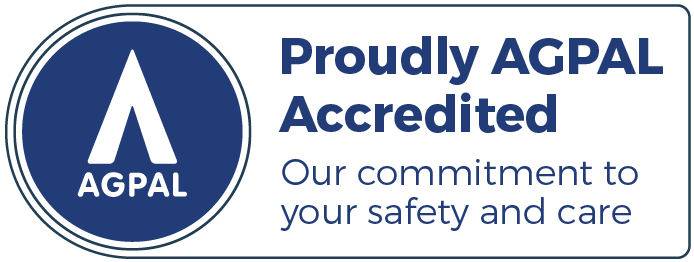Primary course
Pfizer primary course is 2 doses. For people with severe immunocompromise the primary course is 3 doses.
It is preferred that each dose is administered at 8 weeks apart, but the interval can be at three weeks minimum. The shorter interval may be recommended by your doctor if you are at high risk of severe COVID-19.
Find out more about third doses for people who are severely immunocompromised.
Booster dose ( 3rd dose)
Pfizer can also be used as a booster dose in people aged 16 years and older. It can be used for individuals 12+ if they meet the eligibility requirements.
The booster dose is given 3 months or more after the primary course, or at least 3 months after a COVID-19 Infection.
Winter Dose ( 4th dose)
A 4th dose is recommended 3 months after your booster dose if you are
- Adults aged 50 years and older
- Residents of aged care or disability care facilities
- People aged 16 years and older with a medical condition that increases the risk of severe COVID-19 illness; or with disability with significant or complex health needs or multiple comorbidities which increase risk of poor outcome.
- Aboriginal and Torres Strait Islander people aged 50 years and older
ATATGI has also advised that people aged 30 to 49 can receive a 4th dose, however the benefit for people in this age group is less certain.
The additional booster is recommended from 3 months or longer from your previous Covid-19 vaccination, or 3 months after a confirmed SARS-CoV-2 infection, if the infection occurred since the persons first COVID-19 Booster dose .
At Milsons Point Medical Centre we strictly follow ATAGI advice, meaning If you are outside of these criteria we can not provide this service for you. If you have an eligible condition please book in with your doctor to discuss.
2023 Booster
- ATAGI recommends a 2023 COVID-19 vaccine booster dose for adults in the following groups, if their last COVID-19 vaccine dose or confirmed infection (whichever is the most recent) was 6 months ago or longer, and regardless of the number of prior doses received:
- All adults aged 65 years and over
- Adults aged 18-64 years who have medical comorbidities that increase their risk of severe COVID-19, or disability with significant or complex health needs.
- ATAGI advises the following groups should consider a 2023 booster dose if their last COVID-19 vaccine dose or confirmed infection (whichever is the most recent) was 6 months ago or longer, and regardless of the number of prior doses received, based on an individual risk benefit assessment with their immunisation provider.
- All Adults aged 18-64 years without risk factors for severe COVID-19
- Children and adolescents aged 5-17 years who have medical comorbidities that increase their risk of severe COVID-19, or disability with significant or complex health needs.
- ATAGI advises that a booster dose is not recommended at this time for children and adolescents aged under the age of 18 who do not have any risk factors for severe COVID-19.
Find out more about booster doses.
Find out more about 2023 Booster
Paediatric Pfizer
The Therapeutic Goods Administration (TGA) has provisionally approved the Comirnaty (Pfizer) vaccine for children aged 5 years and over .
Vaccinating children can help protect children from getting COVID-19. It can also help prevent children passing the virus onto younger siblings, parents, grandparents and the wider community.
Your child will require 2 doses, 8 weeks apart (but this can be brought forward to 3 weeks in specific circumstances). More detailed information about the vaccine can be found in the ATAGI recommendation.
If your child is aged 11 years and has the paediatric formulation for their first dose, and then turns 12 years of age before their second dose, they should have the adult Pfizer formulation as their second dose.
Find out more information on COVID-19 vaccines and children.
What’s in the Pfizer vaccine
Pfizer is a messenger RNA (mRNA) vaccine. This type of vaccine uses a genetic code called RNA to make your body’s cells produce the coronavirus’ specific spike protein.
Your immune system cells then recognise the spike protein as a threat and begin building an immune response against it. The RNA from the vaccine does not change your DNA in any way, and your body quickly breaks it down.
Pfizer does not contain any live virus and it cannot give you COVID-19.
This video from John Hopkins Bloomberg School of Public Health explains how mRNA vaccines work.
You can read the full Comirnaty (Pfizer) Consumer Medicine Information document on the TGA site for more details (click ‘I accept’ to see the PDF).
Benefits of vaccination
The benefits of vaccination with Pfizer greatly outweigh the risk of side effects.
A very large clinical trial showed that Pfizer is effective in preventing COVID-19 in people aged 12 years and older. People who had 2 doses of Pfizer were about 95% less likely to get ill from COVID-19 than people who did not get the vaccine. It was equally effective in people over the age of 65 years, as well as people with some stable pre-existing medical conditions.
Common side effects
Pfizer is a very safe vaccine. It was been given to millions of people around the world.
As with any vaccine, you may have some temporary side effects after receiving Pfizer. This shows your immune system is working.
Common side effects after Pfizer include:
- injection site pain or swelling
- tiredness
- headache
- muscle or joint pain
- fever and chills.
Less common side effects after the Pfizer vaccine include:
- redness or swelling at the injection site
- nausea
- enlarged lymph nodes
- feeling unwell
- pain in arm or leg
- insomnia
Most side effects are mild and go away within 1 to 2 days.
Rare side effects
Rare side effects after the Pfizer vaccine are severe allergic reaction (anaphylaxis), myocarditis and pericarditis.
Myocarditis or pericarditis
In rare cases, myocarditis (inflammation of the heart) and pericarditis (inflammation of the membrane around the heart) can develop after vaccination with Pfizer.
Most cases have mild symptoms and recover well.
The TGA reports that these rare effects on the heart typically occur:
- within 1 to 5 days of vaccination
- predominantly after the second dose
- more often in men aged under 40.
But they can occur in any gender, at any age, and after any dose.
Contact a doctor or go to hospital immediately if you develop any of the following symptoms after a Pfizer vaccination:
- chest pain
- pressure or discomfort in the chest
- irregular, skipped heartbeats or ‘fluttering’
- fainting
- shortness of breath
- pain when breathing.
Low risk of developing myocarditis or pericarditis
The risk of developing myocarditis or pericarditis is very low.
In the US, reported rates in males were 10 cases per million after first doses, and 67 cases per million after second doses. The TGA is monitoring the risk in the Australian population.
The risk in children aged 5 to 11 years is not yet known. The clinical trial in children aged 5 to 11 years did not have enough participants to assess rates of myocarditis or pericarditis following the Pfizer COVID-19 vaccine, but no specific safety concerns have been identified so far from millions of doses of this vaccine administered overseas to children aged 5 to 11 years. The benefits of vaccination outweigh this very rare risk, and vaccination is still recommended for all eligible age groups.
Fact sheets
You can find out more about myocarditis and pericarditis and COVID-19 vaccines here.
We have printable guidance on myocarditis and pericarditis after mRNA COVID-19 vaccines for providers.
The Melbourne Vaccine Education Centre has a page on myocarditis and pericarditis that includes an explanatory video.
Use in particular groups
People with certain conditions may need additional precautions such as staying for 30 minutes of observation after having their vaccine or consulting an allergy specialist. Tell your immunisation provider if you have had:
- an allergic reaction to a previous dose or to a component of an mRNA COVID-19 vaccine (Pfizer or Moderna)
- anaphylaxis to other vaccines or to other medications – your provider can check that there are no common components with the Pfizer vaccine.
- Confirmed mastocytosis with recurrent anaphylaxis that requires treatment.
If you have a bleeding disorder or you are taking a blood-thinning medication (anticoagulant), tell your immunisation provider. Your immunisation provider can help determine whether it is safe for you to have an injection in your muscle and help decide the best timing for injection.
People with a history of any of the following can receive Pfizer, but talk to your GP, immunisation specialist, or cardiologist about the best timing of vaccination and whether any additional precautions are recommended:
- Recent (i.e. within the past 3 months) myocarditis or pericarditis
- Acute rheumatic fever or acute rheumatic heart disease (with active myocardial inflammation)
- Acute decompensated heart failure.
People who develop myocarditis and/or pericarditis after a COVID-19 vaccine should defer further doses and discuss options for further COVID-19 vaccination with their treating doctor.
Pfizer is safe and effective for:
- People who are immunocompromised
- People who are pregnant, breastfeeding or planning pregnancy.
People who should not have the Pfizer vaccine
It’s not recommended that you have the Pfizer vaccine if you have had:
- a severe allergic reaction (anaphylaxis) to a previous dose of the vaccine
- anaphylaxis after exposure to any component of the vaccine, including polyethylene glycol (PEG)
- myocarditis and/or pericarditis attributed to a previous dose of the vaccine
- any other serious adverse event attributed to a previous dose of an mRNA(Pfizer or Moderna) vaccine.
After your COVID-19 vaccination
Find out what to do after you are vaccinated for COVID-19, including how to get your vaccination certificate, what you need to do to stay safe, and what to do if you have side effects.
If you have been vaccinated with Pfizer, you should still get a COVID-19 test if you have symptoms that meet testing criteria according to your local health authority (such as fever, cough, or sore throat).


















